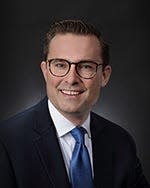How do elections in Tunisia compare to Michigan? This county clerk learned firsthand
- Oops!Something went wrong.Please try again later.
OTTAWA COUNTY — It was November, and Ottawa County Clerk Justin Roebuck was having dinner with his wife. He received an email — the kind that promised an opportunity of a lifetime. And he wondered if it wasn't too good to be true.
Roebuck was invited by the Carter Center, a non-governmental organization (NGO) founded by President Jimmy Carter, to observe a parliamentary election in Tunisia, located on the Mediterranean coast of Africa between Algeria and Libya. It has a population of about 12 million.

He only had a couple of days to decide. The election took place Dec. 17.
“I read through it, and it basically said, ‘(You're) going to have to know in the next 48 hours,’” Roebuck said. “I just handed (my wife) my phone after she got back (from stepping away from the table), assuming she’d say no."
But she didn't.
The email came from Carter Center CEO Paige Alexander, whom Roebuck had met before — but he still wasn't sure why he was selected. Roebuck, in charge of running elections in Ottawa County, admitted he knew practically nothing about Tunisian politics or elections.
In 2010, Tunisia had a different government. Protests against that government ultimately started what's become known as the Arab Spring, a pro-democracy movement continuing today in parts of Africa and the Middle East.
“Basically (President Zine El Abidin) Ben Ali, who was the dictator, left the country and was deposed under their (new government) rule,” Roebuck said. “They had these rules on how to remove someone from office, but basically had never done it. So, they removed him from office, set up a new system of government, wrote a new constitution, established a parliament and elected a president.”
But that government had its issues, too. After violent anti-government protests in 2021, current President Kais Saied imposed a self-coup and dismantled the Tunisian parliament.
“When they announced this election for Dec. 17, there were several NGOs that applied to observe the election,” Roebuck said. “The government was pretty anxious that the global community saw what was going on.”
Roebuck said he was one of only five Americans invited to observe the election and one of only two that served as an actual election official. The other was Brianna Lennon, clerk for Boone County, Missouri.
After observing the election, Roebuck said there were some things Tunisia did better.
“I was really impressed on the administrative side,” he said. “They are very highly centralized. There is a state independent authority that runs the election process from the administrative side.
“There are appointed officials everywhere, but they do things very similarly. In some ways, that was eye-opening because (that's) not how we do things here, because we are so decentralized in Michigan and the U.S.”
Still, Roebuck said, there were things the country could've done better, such as how ballots were counted. Everything, he said, was done by hand.
Roebuck said it takes 14 days for Ottawa County to tabulate and certify ballots after Election Day. In Tunisia, the process begins when the polls close at 6 p.m. and is completed within 24 hours.
For an election nerd like Roebuck, the experience was fascinating. But the average Tunisian couldn’t have cared less, he said. The election had a meager turnout.
Subscribe:Learn more about our latest subscription offers
Most people he spoke to had little or no hope things would improve with the new parliament. Roebuck said his driver in Tunisia spoke English well and was pessimistic about the election.
“He was saying that the old regime, before the revolution happened, it was corrupt, and people were silenced a lot for speaking out,” Roebuck said. “But grocery stores had food, people had jobs, and people could provide for their families.”
Given the opportunity, Roebuck said he would visit the country again.
This article originally appeared on The Holland Sentinel: How do elections in Tunisia compare to Michigan? This county clerk learned firsthand
